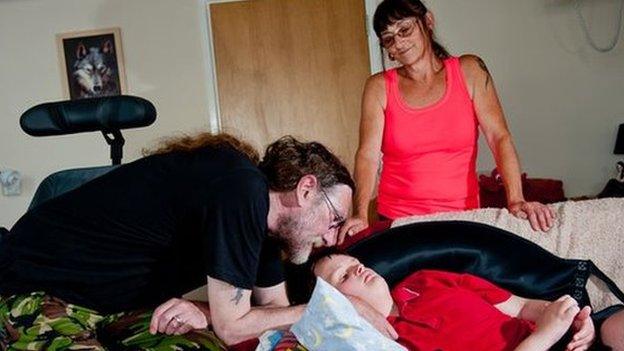Housing benefit changes causing 'heartache' Supreme Court told
- Published
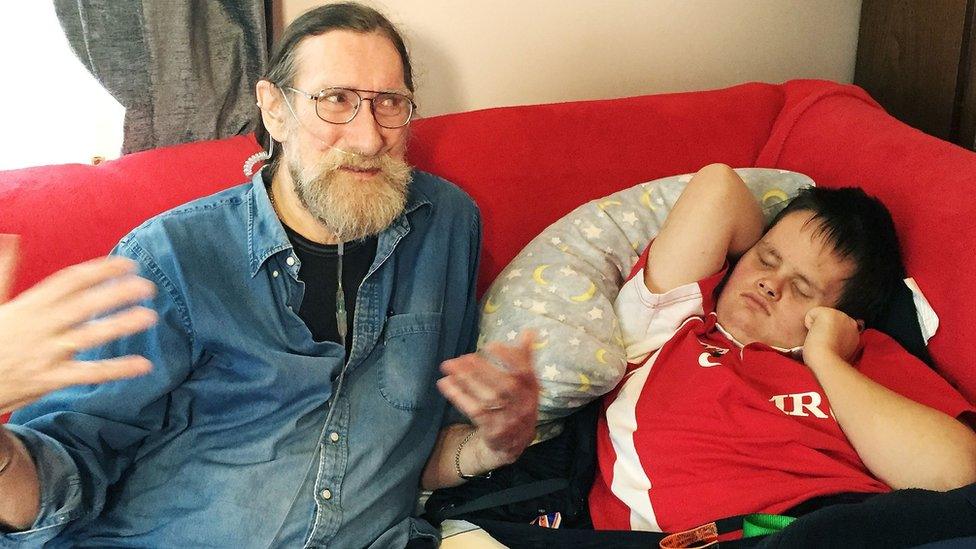
The Supreme Court is also hearing a government challenge against a Court of Appeal ruling
The husband of a disabled woman has told the Supreme Court of the "heartache" they have suffered following changes to housing benefits.
Jayson Carmichael, who is full-time carer for his wife, said the changes - which critics have dubbed the "bedroom tax" - had left them "depressed".
Judges at the UK's highest court are examining if the removal of the government's spare room subsidy is discriminatory in some cases.
The changes started in April 2013.
Since then families claiming housing benefits who are deemed by their local authorities to have too much living space have received reduced benefits, with payments being cut by 14% if they have one spare bedroom.
The government argues the policy changes encourage people to move to smaller properties and save around £480m a year from the housing benefit bill.
Benefit reduced
Mr Carmichael, 53, from Southport, Merseyside, who shares a two-bedroom housing association flat with his wife Jacqueline, who has spina bifida, brought the challenge along with four others after suffering defeat at both the High Court and Court of Appeal.
Her condition means she has to sleep in a hospital bed in a fixed position. There is not enough space for a second bed so her husband sleeps in a separate bedroom.
"It has caused us a lot of stress and heartache," he said. "We are having to think about it all the time and being depressed about it. It is fight after fight, case after case."
The other cases set to be examined involve people who have all had their housing benefit reduced as a result of the government's changes, including:
Richard Rourke, 46, from Bakestone Moor, Derbyshire, who says he needs an additional bedroom to store mobility equipment. He has had his housing benefit reduced by 25%.
James Daly, from Stoke, is the father of a severely-disabled 13-year-old son. He and his ex-partner share the boy's care.
Mervyn Drage, from Manchester, occupies a three-bedroom flat in a high-rise tower block, and has lived there for 19 years. He suffers from mental health and physical problems.
Plus another case made by an appellant known as "JD" who remains anonymous for legal reasons.
Discrimination
In addition, the government will challenge an earlier ruling which found in favour of a domestic abuse victim and a disabled boy's family.
Last month the Court of Appeal ruled the policy had discriminated against Pembrokeshire couple Paul and Susan Rutherford and their 15-year-old grandson Warren and a woman identified as "A" who had a council house fitted with a panic room to protect her from a violent partner.
Judges ruled "A" and the Rutherford family suffered discrimination, contrary to Article 14 of the European Convention on Human Rights.
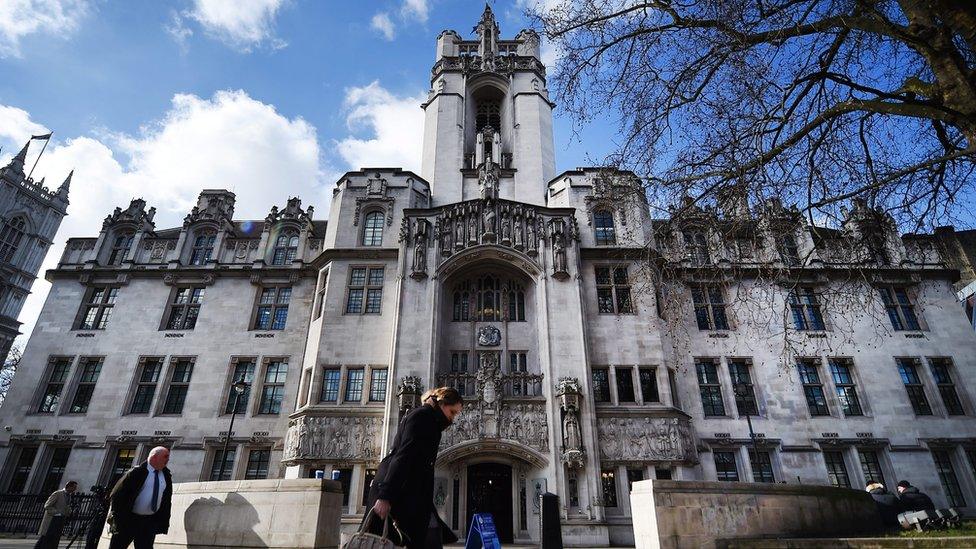
The cases will be heard at the Supreme Court during a three-day hearing
The Court of Appeal's ruling focused on the impact of the policy on disabled children needing overnight care and on women living in properties adapted because of risks to their lives.
The BBC's legal correspondent Clive Coleman said the ruling would affect people within these two specific groups.
There are believed to be about 300 such victims of domestic violence and thousands of severely disabled children in this situation.
Solicitor Ugo Hayter, who acts for Mrs Carmichael and Mr Rourke, said: "My clients are looking to the Supreme Court to recognise and bring to an end the awful hardship they, and many other disabled people nationally, have been subjected to since the introduction of the bedroom tax."
Karen Ashton from the charity Central England Law Centre, who represents Mr Daly, Mr Drage and "JD", said the case "is about fairness".
- Published27 January 2016
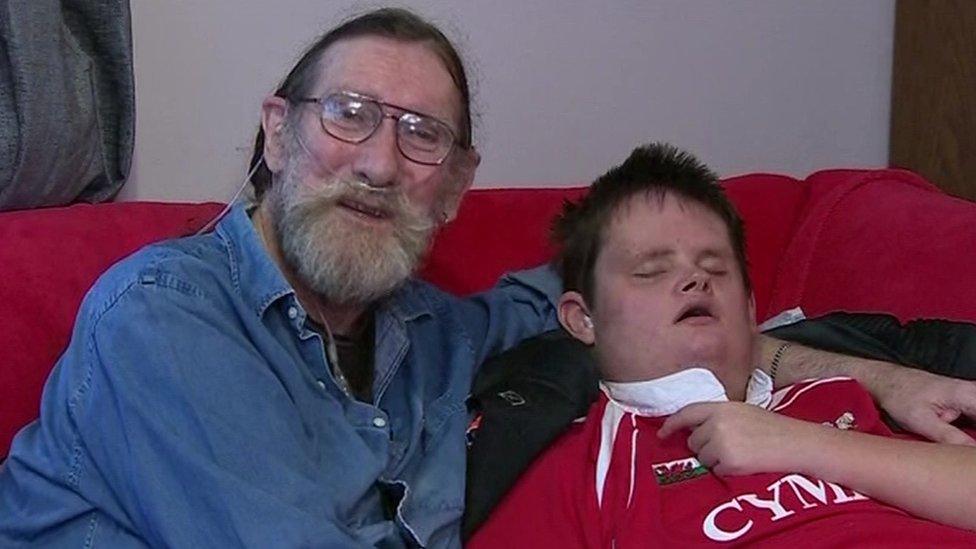
- Published27 January 2016
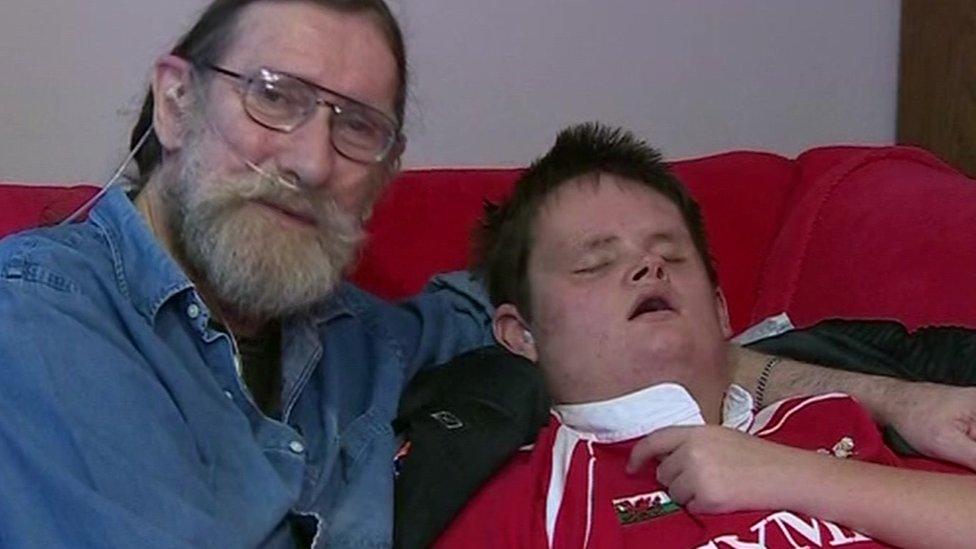
- Published30 July 2013
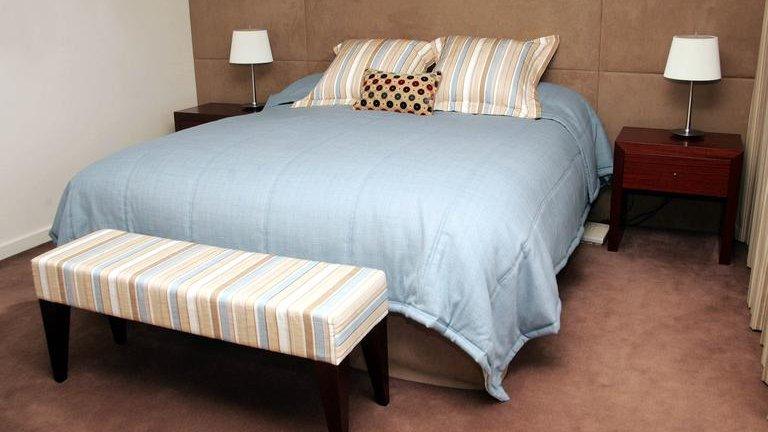
- Published19 November 2014
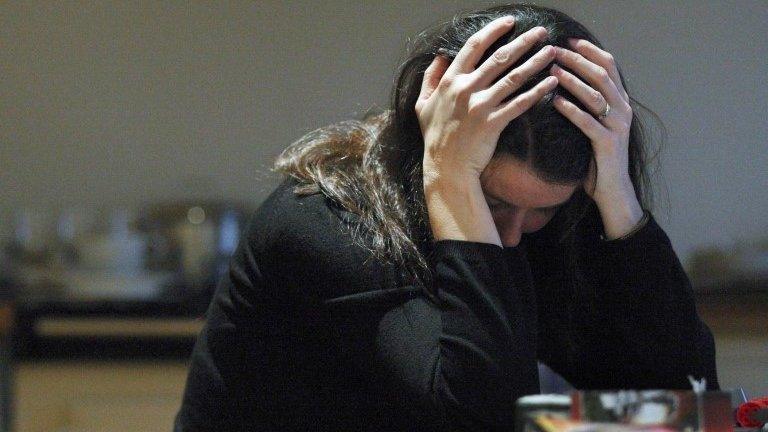
- Published19 November 2014
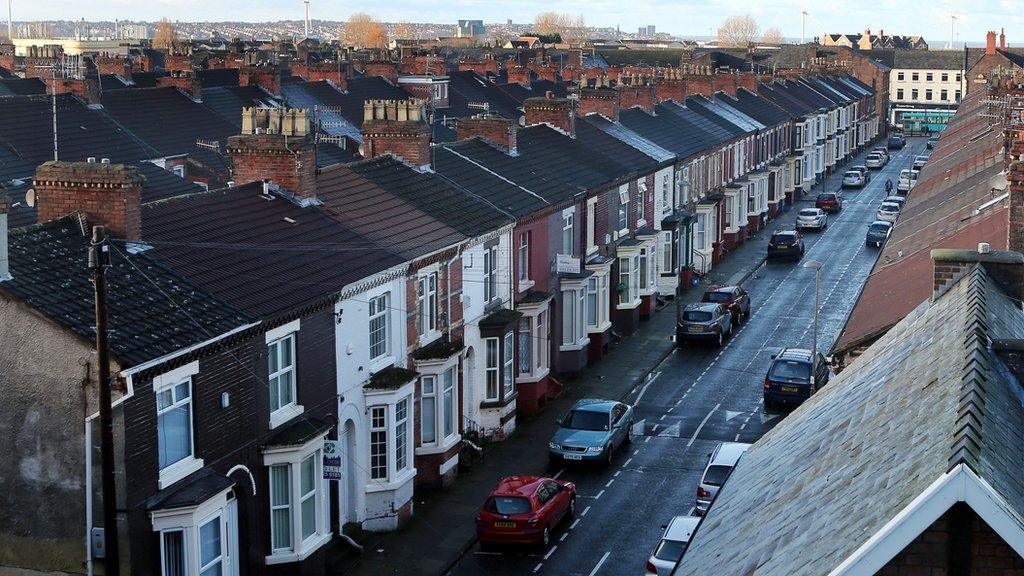
- Published30 May 2014
